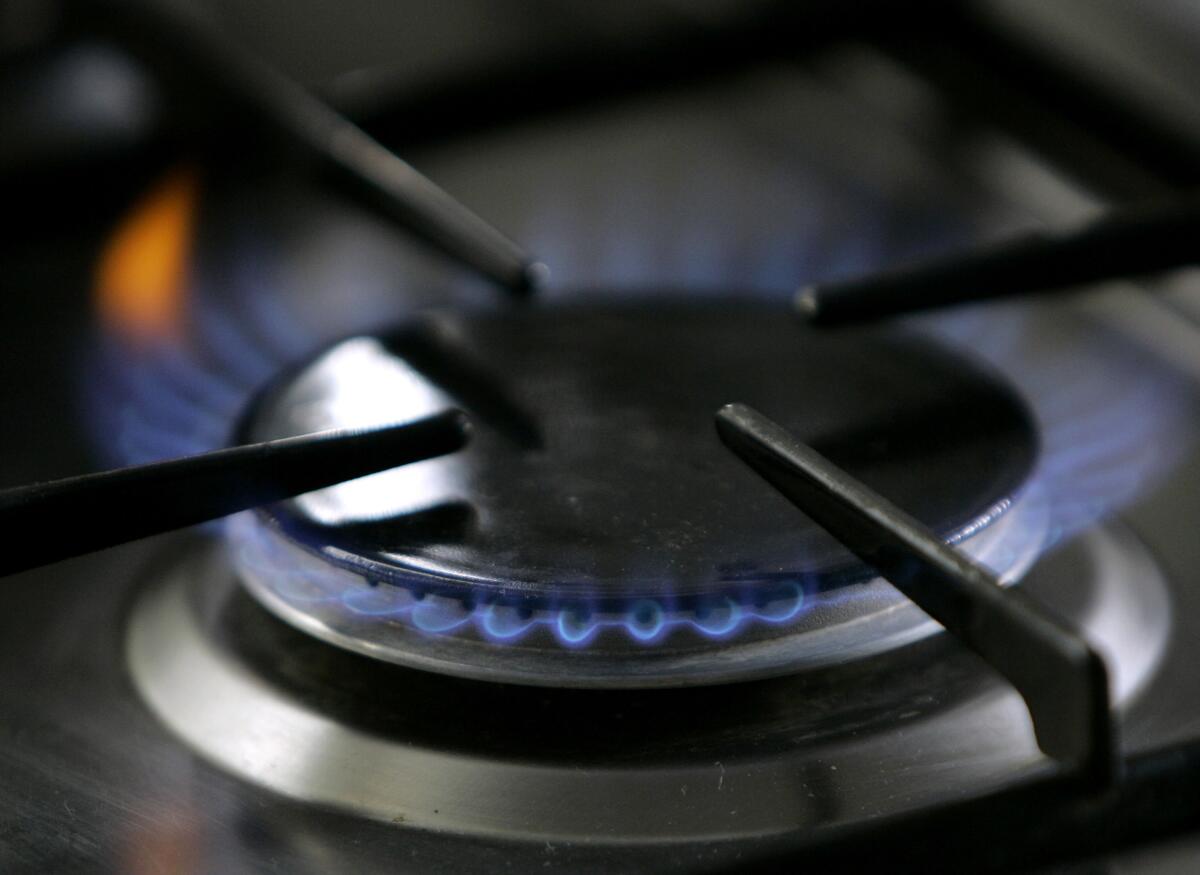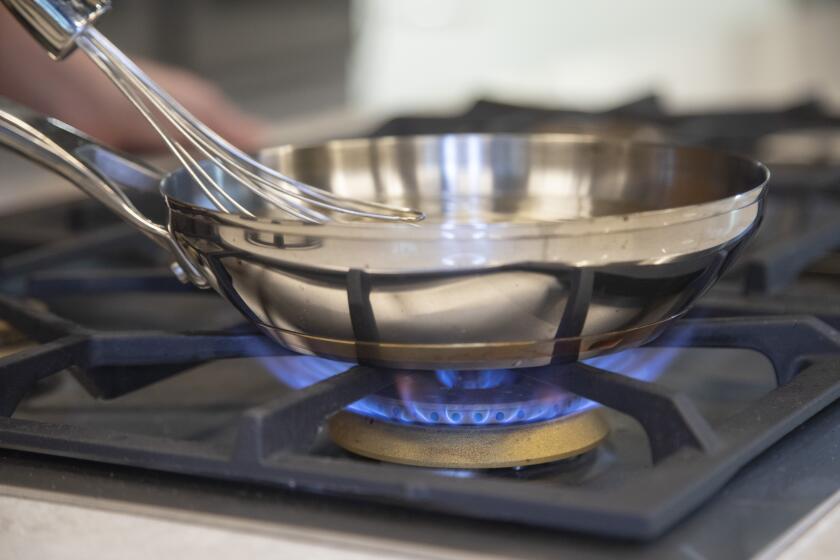Editorial: No, the feds aren’t coming for your gas stove. But these unhealthful appliances still need to go

Who could have predicted that kitchen stoves would become the latest tinderbox in the nation’s culture wars?
But that’s what happened in recent days as Republicans flew off the handle over comments by Richard Trumka Jr., a member of the U.S. Consumer Product Safety Commission, who said the agency was looking at regulating gas stoves and could even ban them because they are a health hazard.
GOP politicians seized on the remarks, accusing President Biden and the Democrats of trying to take away people’s gas stoves. Florida Rep. Matt Gaetz declared they’d have to “pry” his gas stove “from my COLD DEAD HANDS!” and Rep. Jim Jordan of Ohio debuted a new motto of sorts: “God. Guns. Gas stoves.”
They were joined by Democratic Sen. Joe Manchin III of West Virginia, a champion of the fossil fuel industry, who said “the federal government has no business telling American families how to cook their dinner” and “the last thing that would ever leave my house is the gas stove that we cook on.”
Don’t fear L.A’s gas appliance ban. The future is electric.
Of course, no federal officials are going to barge into homes and confiscate stoves, and any regulations the Consumer Product Safety Commission might pursue would apply only to new products anyway.
So far, the commission has done little more than announce last fall that it would be seeking public input on the hazards associated with gas stoves. It garnered little attention until last week, when it exploded into a national news story and social media controversy. The uproar forced the commission chair to clarify Wednesday that the commission is exploring ways to reduce indoor air pollution from gas stoves but is not looking to ban them or in any proceedings to do so. The White House weighed in too, telling reporters Wednesday that President Biden “does not support banning gas stoves.”
But the commission is right to consider regulations. The fact is, there are real, longstanding health concerns about gas stoves. They are used in 35% of U.S. homes and can generate harmful levels of indoor air pollution, especially in homes that lack proper ventilation, such as range hoods that vent to the outside.
Leaving the daily standard at the same level set 16 years ago would give Americans the false impression that the air they are breathing is safe.
Alarming new findings in a recently published study suggest that more than 12% of childhood asthma cases in the United States can be attributed to the use of gas stoves and that they pose a similar risk to children as being exposed to secondhand smoke. The numbers are worse in California, where scientists estimated that more than 20% of childhood asthma cases are attributable to gas stove use. Some 74% of California households with children cook with gas, much higher than the national average of 43%, according to researchers.
Previous studies have shown that natural gas stoves, which burn planet-warming methane and a stew of toxic chemicals, generate unhealthful levels of air pollutants, including nitrogen dioxide, formaldehyde and carbon monoxide. They also leak so much that they can push indoor concentrations of cancer-causing benzene to dangerous levels even when they are off. Though more research is needed, regulators should know enough at this point to take action.
The Consumer Product Safety Commission should consider rules for gas stoves that would set standards for emissions, leakage and ventilation and better inform the public about the health risks they pose. Gas stoves should ultimately be phased out to protect public health and the climate, but that will take years given the politics and expense of retrofitting homes for all-electric appliances.
The recent eruption of faux outrage over a nonexistent gas stove ban should be understood as the latest outgrowth of a decades-long disinformation campaign by the fossil fuel industry whose business model is threatened by the transition to all-electric homes powered by renewable energy. Stoves account for only a small percentage of household gas use but have become cultural symbols that gas companies and their supporters have manufactured through greenwashing campaigns designed to prolong their use and slow action to protect public health and the climate.
This brouhaha, by shedding more light on the risks of cooking with gas, could hasten our country’s move to cleaner, more efficient technology. It’s a transition that is happening whether fossil-fuel-supporting politicians like it or not.
As an environmental reporter, I write about how climate change is hurting people and the planet. But at home, I’ve struggled to talk about it with my own daughters.
Los Angeles is among a growing list of U.S. cities that have already banned gas stoves, furnaces and other fossil-fueled appliances in new construction and require new buildings to be all-electric. And under the landmark climate law signed last year by Biden, many Americans will soon be offered rebates and other incentives to help them replace their old fossil-fueled appliances with new, energy-efficient electric ones.
That includes up to $840 to replace a gas stove or cooktop with an induction or other electric-powered model, making the switch much more affordable. Highly rated induction ranges can be purchased for around $1,200 or less and offer superior performance and efficiency. They score significantly higher than gas-fueled models in Consumer Reports’ ratings, leading that organization to proclaim they “are so good you may not miss your gas appliance.”
There won’t be any federal agents pounding on your door to seize your gas stove. But there might be a generous government incentive to motivate you to switch it out for something cleaner, faster, less polluting and better for your family’s health.
More to Read
A cure for the common opinion
Get thought-provoking perspectives with our weekly newsletter.
You may occasionally receive promotional content from the Los Angeles Times.













